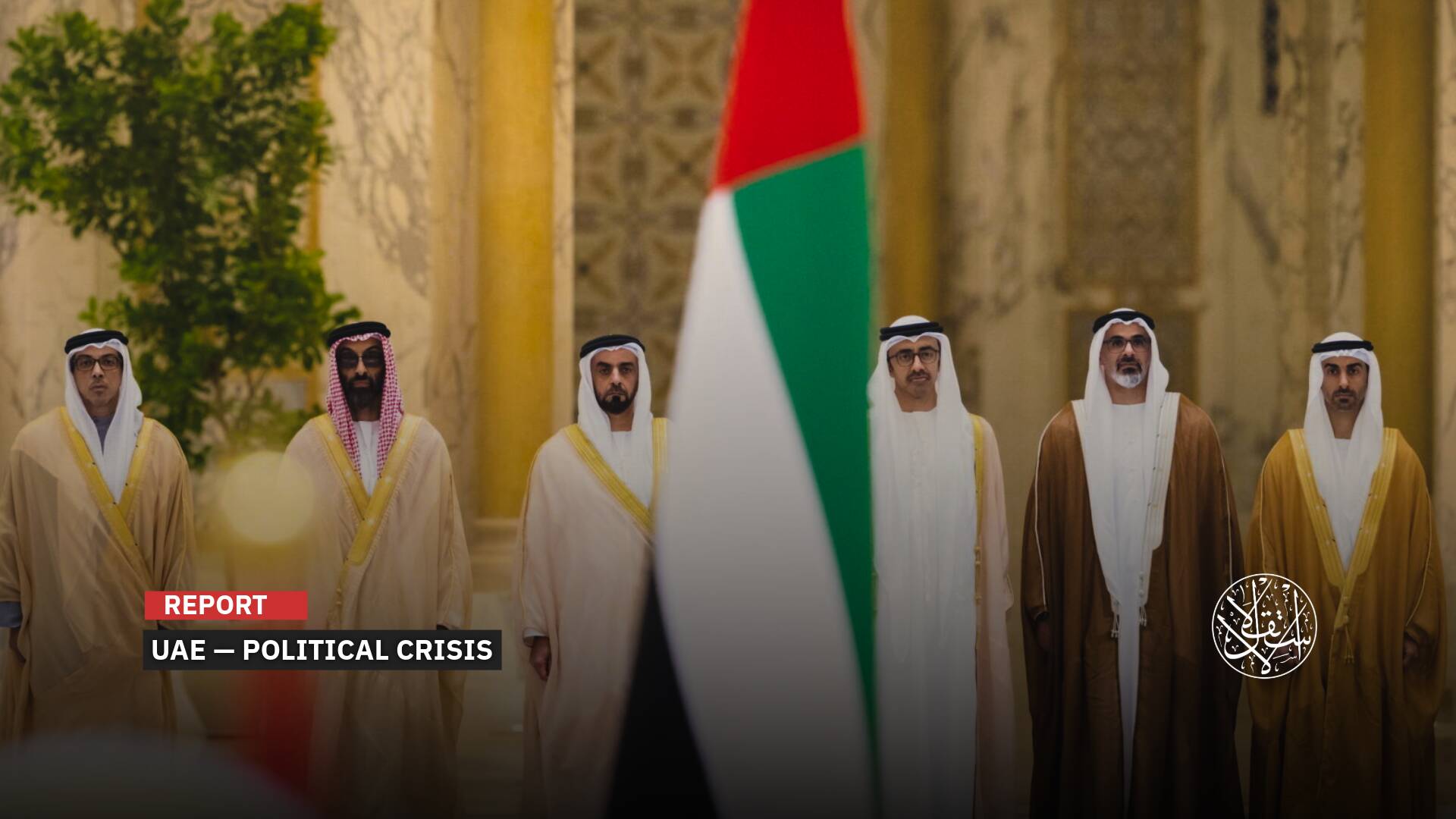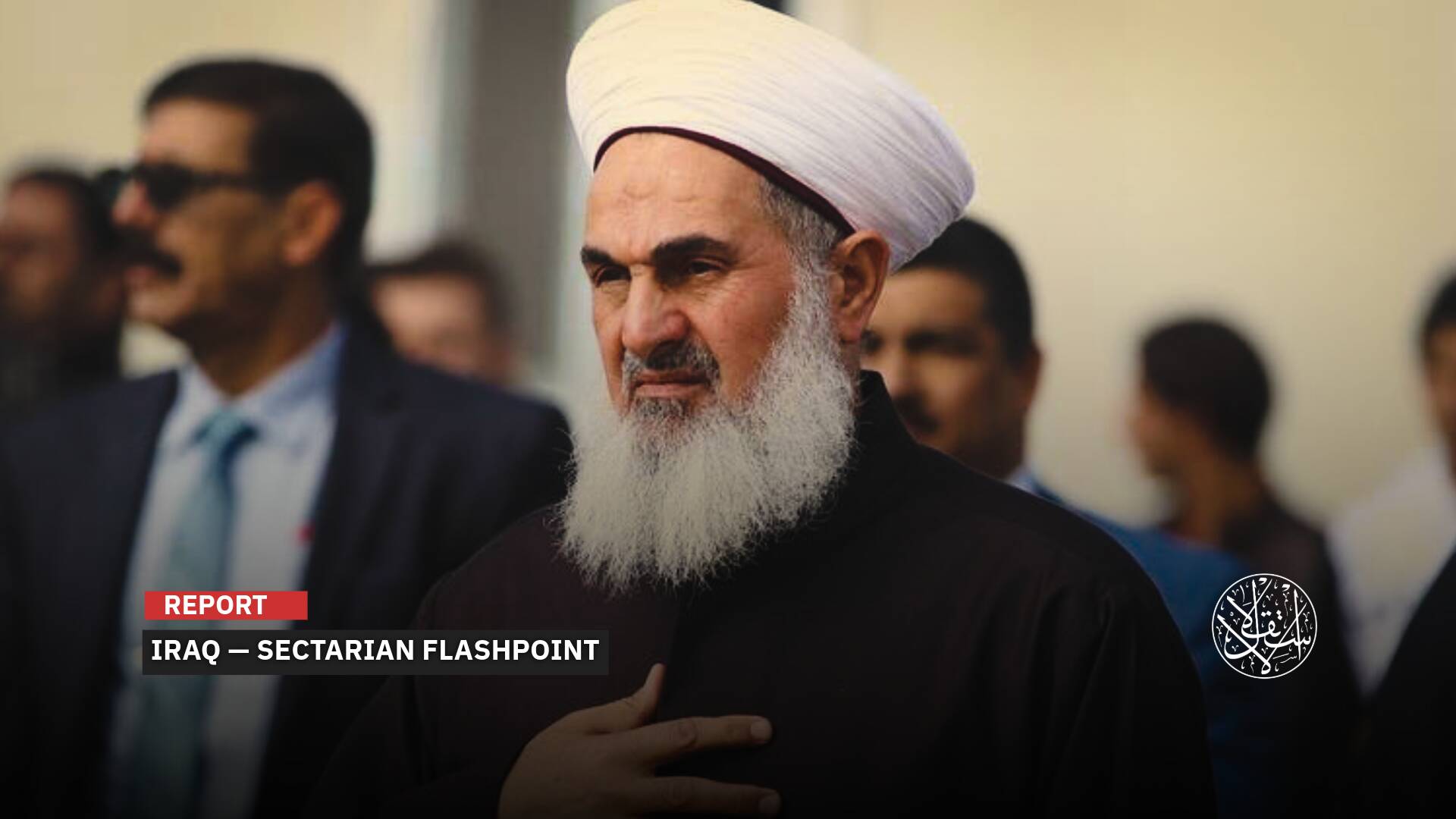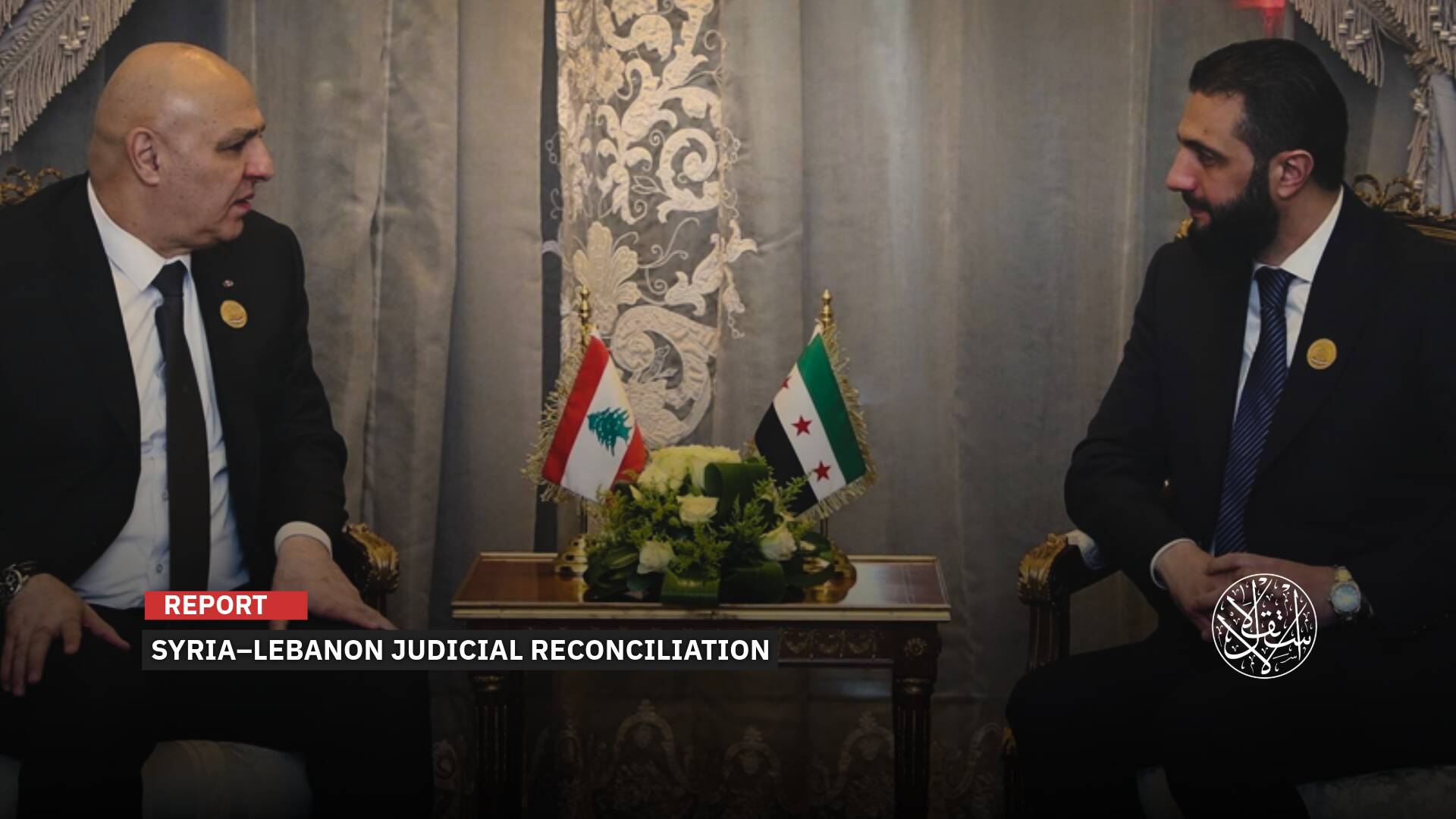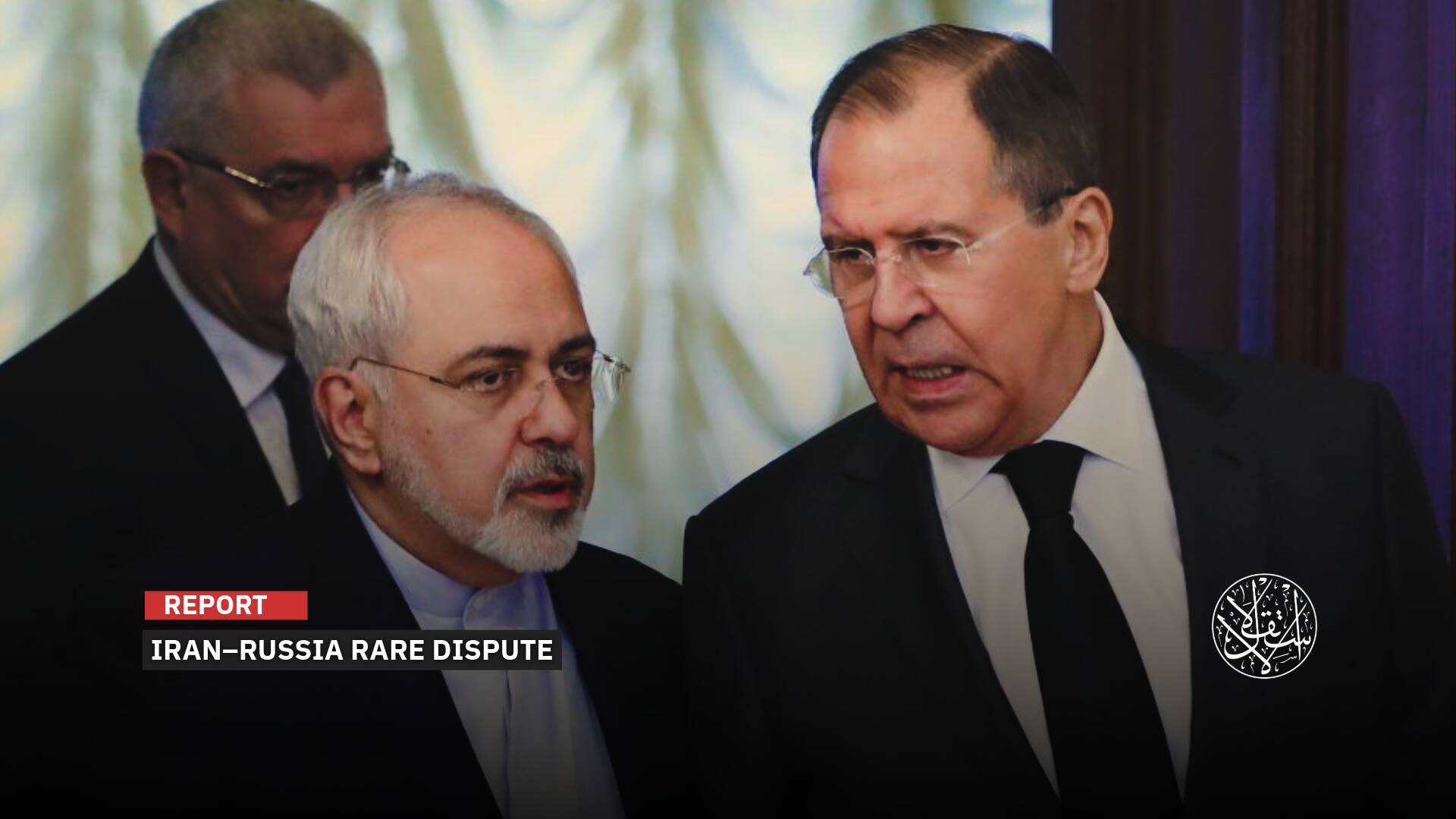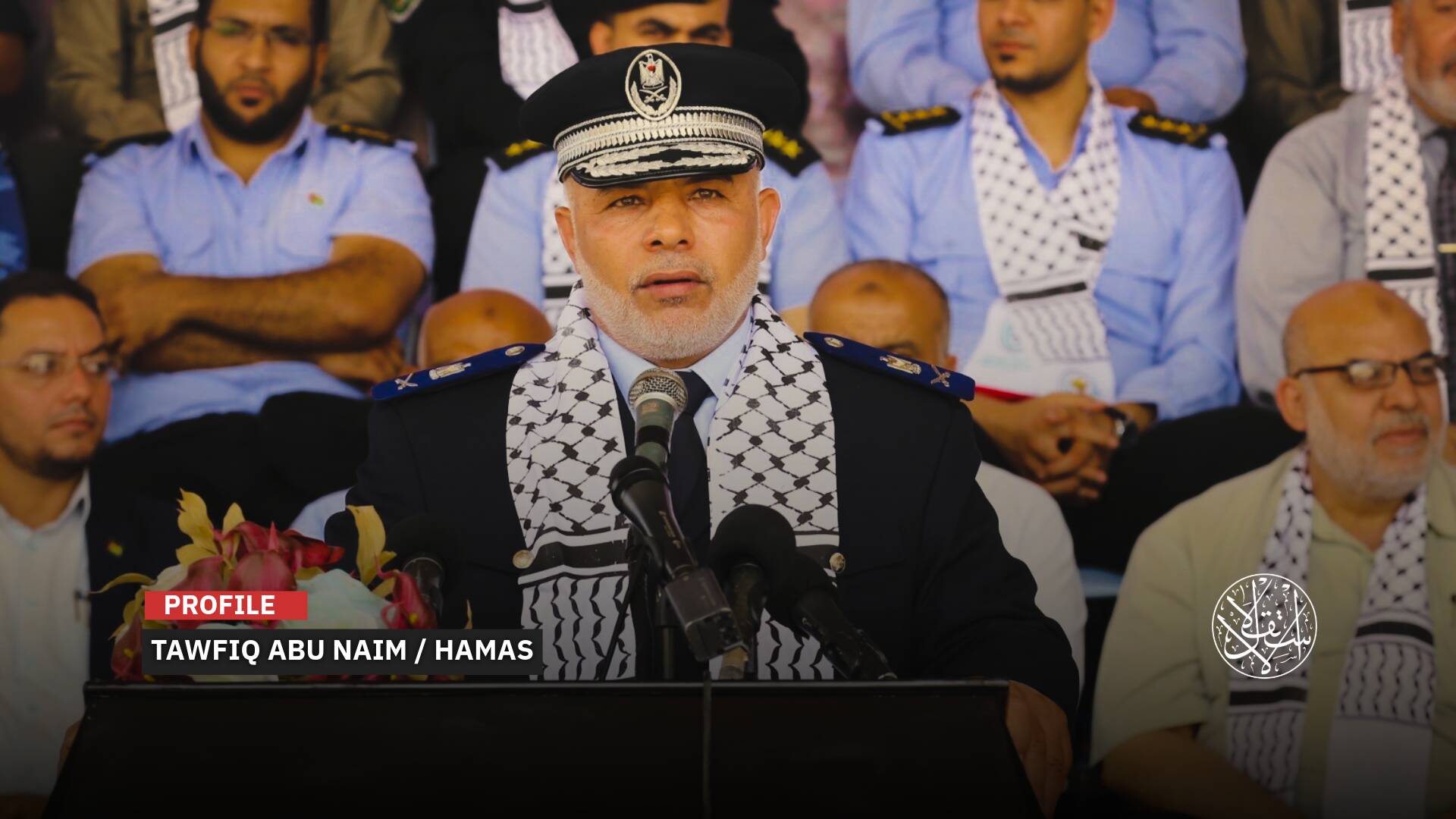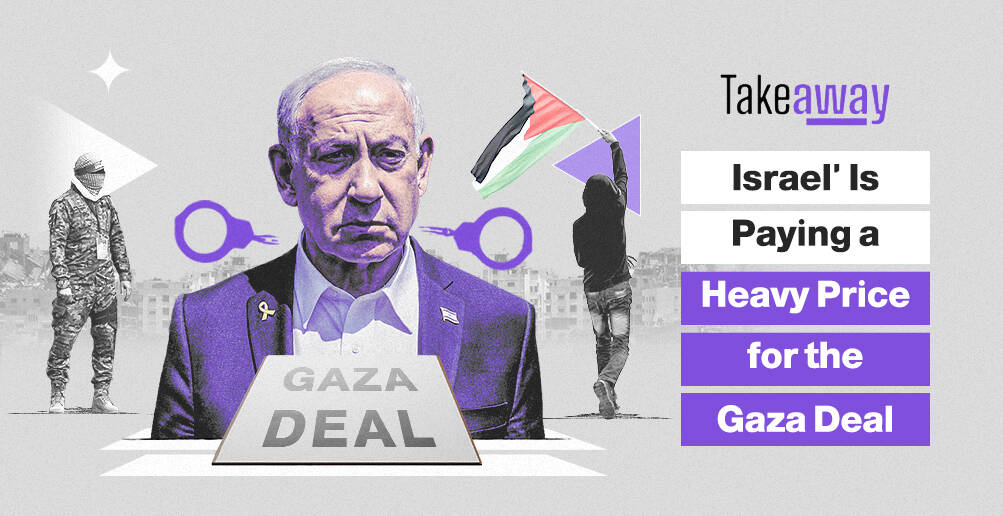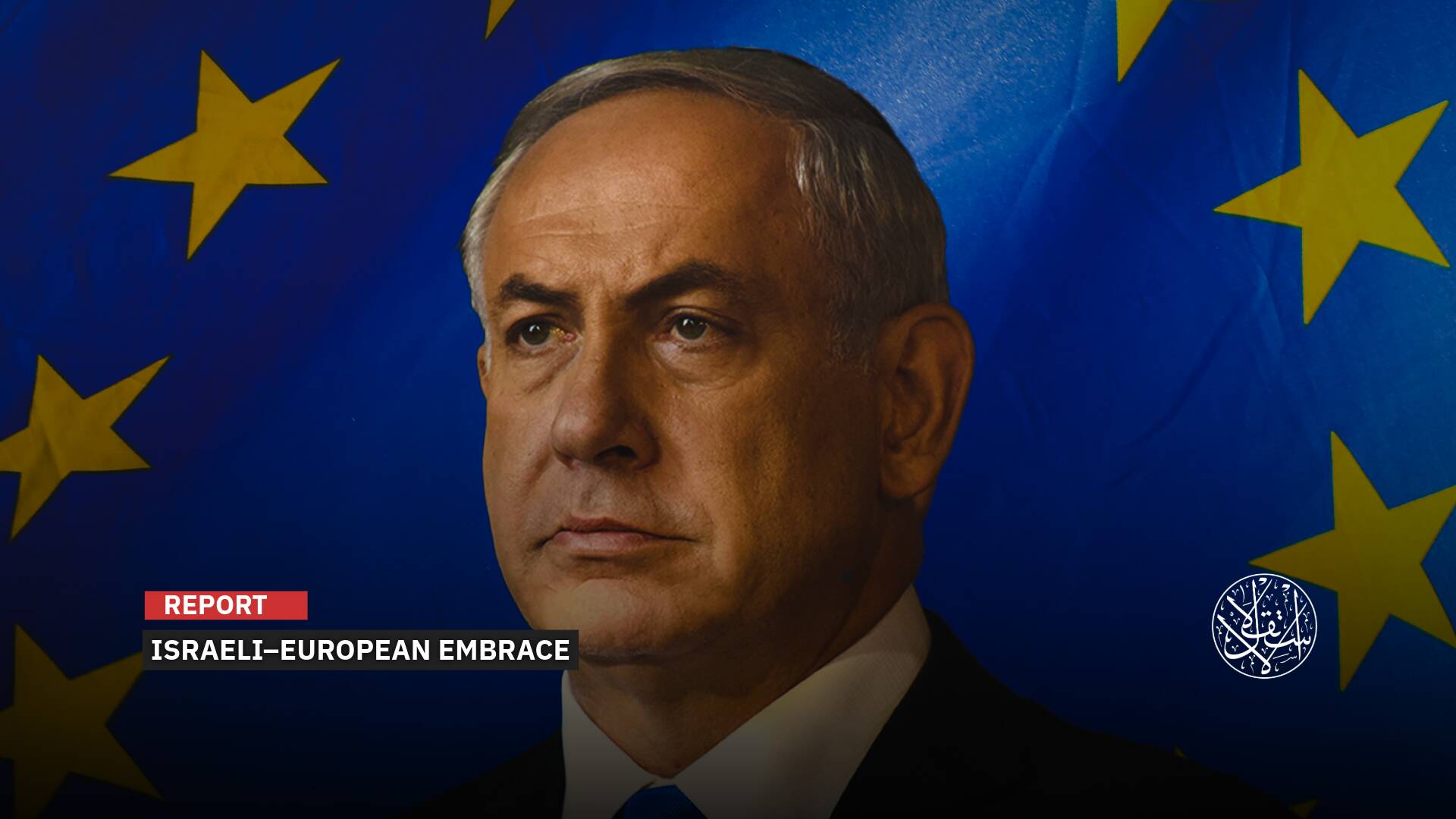Hidden Goals: Why American Shuttle Visits to ‘Israel’ Raise Doubts and Questions
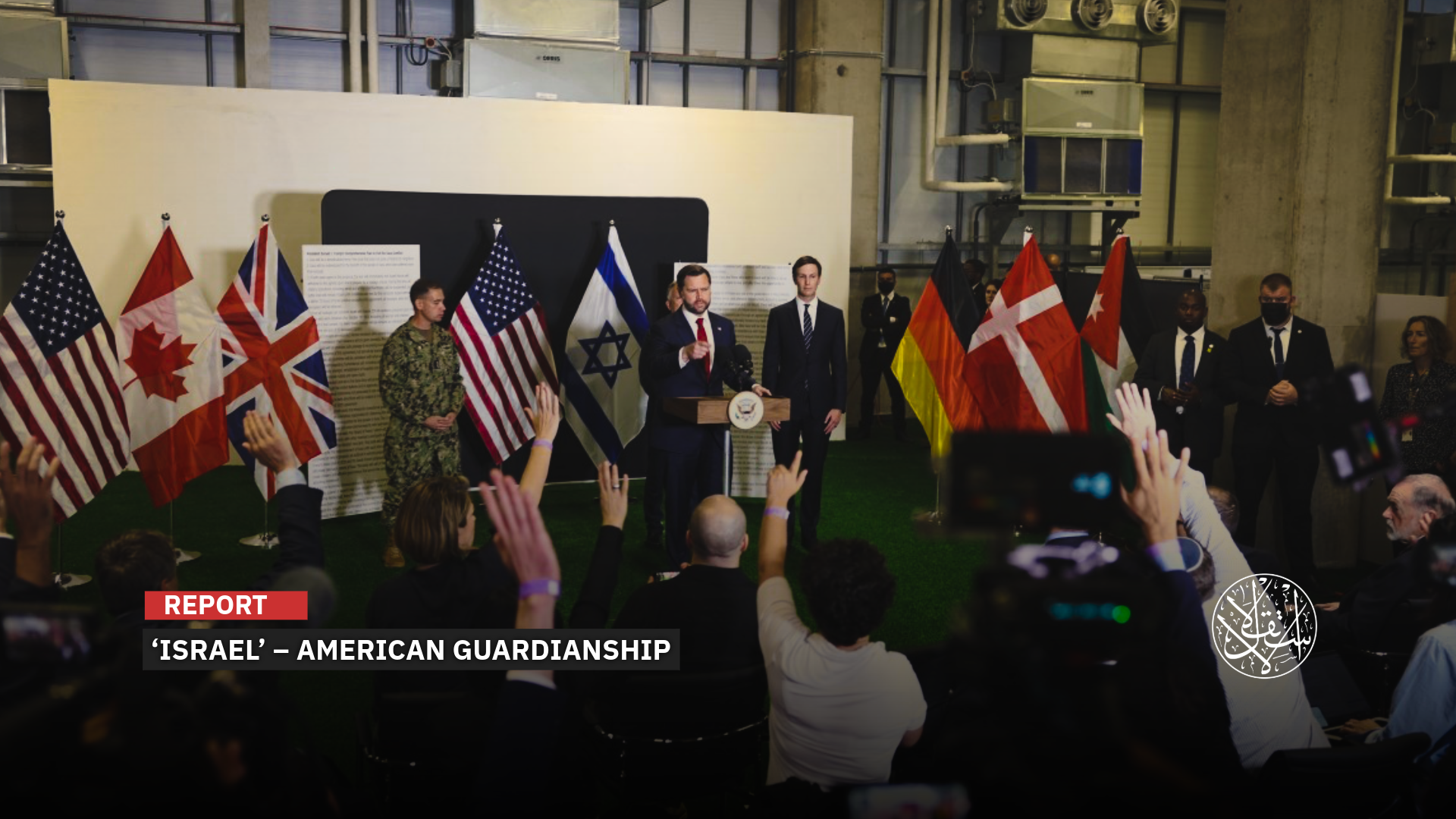
“In recent months it has become clear that “Israel” has effectively become an American protectorate.”
In recent weeks, US-Israeli relations have undergone an unprecedented transformation, with Washington appearing to exert direct control over Israel's security and political decisions.
This is evidenced by a series of intensive visits by senior US officials, as well as the establishment of a permanent international headquarters into “Israel”—a move analysts consider a practical manifestation of what resembles American tutelage or a fifty-first state.
This intense US activity toward “Israel” raises numerous questions in political and media circles about what Washington demands of Tel Aviv regarding Gaza and the region, in a scenario that conveys the message that there is no room for error or uncoordinated unilateral action.
American Guardianship
Tel Aviv has recently witnessed intensive activity from senior White House officials aimed at pushing for the transition to the second phase of Trump's plan, amid US concerns that Israeli Prime Minister Benjamin Netanyahu might undermine the ceasefire agreement in Gaza and reignite the war.
Haaretz quoted security sources as saying that US officials have confirmed they will not tolerate any surprises that could undermine the agreement, indicating that the United States is stripping “Israel” of its security authority.
Following US President Donald Trump's visit to Tel Aviv, Trump's son-in-law Jared Kushner and special envoy Steve Witkoff remained in “Israel”.
J.D. Vance then arrived to meet with Israeli officials, followed by Foreign Minister Marco Rubio. The director of the CIA is expected to arrive soon.
Upon arriving in “Israel”, Vance spoke to the media from inside the new coordination center where some 200 US troops are currently stationed to monitor the progress of the recently signed ceasefire agreement between Hamas and “Israel”.
He said he was genuinely optimistic that the agreement would hold despite recent violations.
He added, "There will be moments when things don't seem to be going well. But considering that and the history of the conflict, I think everyone should be proud of where we are today."
No sooner had Vance left Tel Aviv than Rubio arrived. During his visit, he emphasized ensuring Israel's security, disarming Hamas, and the need for all parties to adhere to their commitments, while turning a blind eye to the violations committed by the Israeli army in Gaza.
He also reiterated the United States' rejection of any activity by the United Nations Relief and Works Agency for Palestine Refugees (UNRWA), as well as the presence of any entity that launches attacks against “Israel” in the future.
As soon as Rubio concluded his visit to the US-Israeli Coordination Center on Gaza in Kiryat Gat, the US State Department announced the appointment of the current ambassador to Yemen, Steven Fagin, to head the new project.
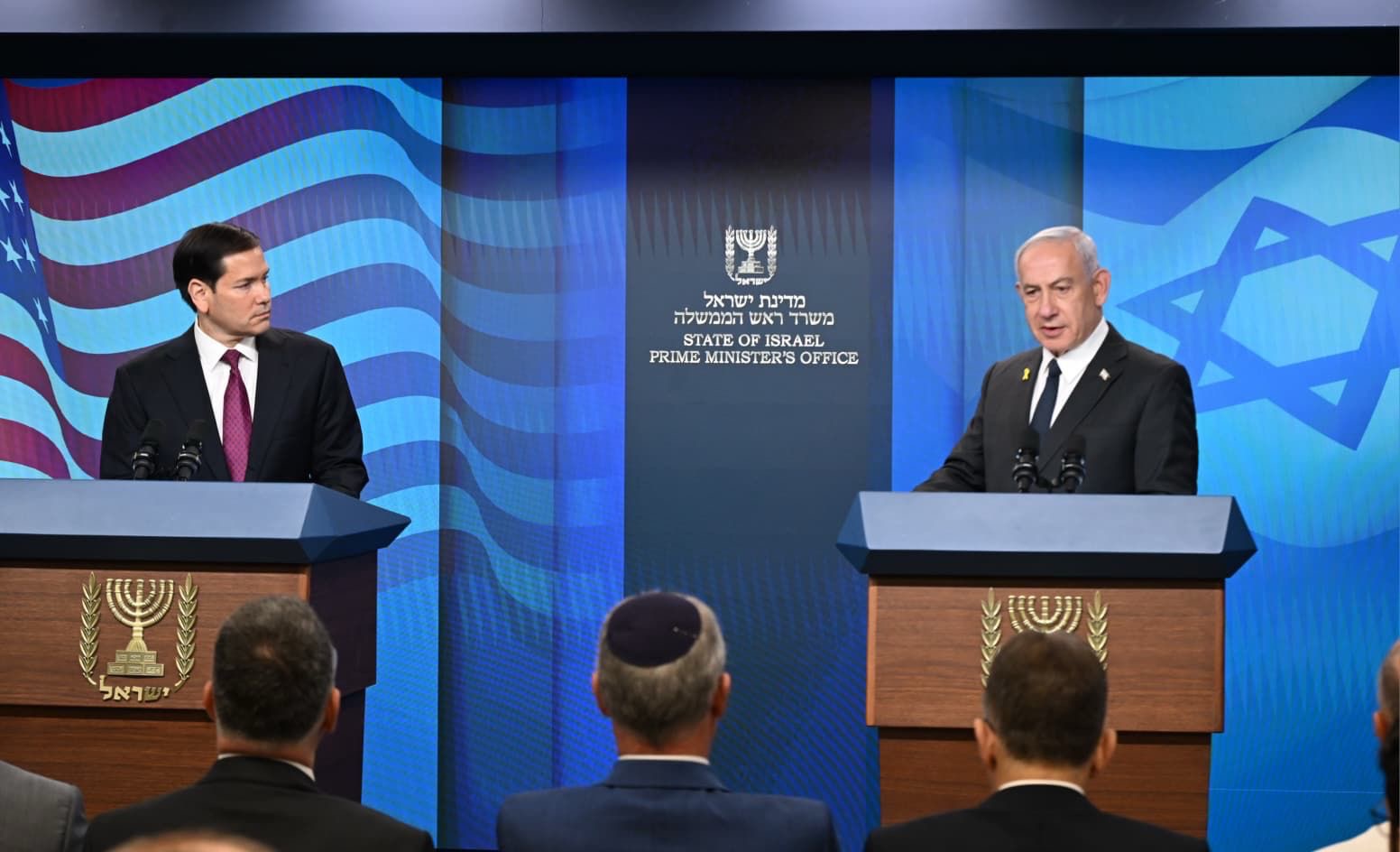
Diplomatic Approach
The Wall Street Journal revealed differences within the US administration regarding recent moves in the Middle East, confirming that Rubio and other senior officials coordinated their visits to Tel Aviv on their own initiative, independent of White House directives.
These successive visits come as part of efforts to reassure the Israeli government and ensure the stability of the recently signed ceasefire agreement with Hamas.
The intensified US activity reflects growing concern within Washington about the possibility of the agreement collapsing in its early stages, especially given the continued fragility of the situation on the ground in the Gaza Strip.
In addition, there are differences within the Israeli establishment regarding the mechanisms for implementing the peace plan announced by Trump on October 9, which stipulates gradual steps to end the fighting and rebuild Gaza.
Witkoff and Kushner delivered a strong message to Netanyahu in their recent meeting, stating that “Israel” must avoid escalation by ensuring that any responses to alleged ceasefire violations by Hamas are proportionate.
Analysts believe this reflects competing factions within the new US administration. Some seek to exert direct influence on the Israeli-Palestinian issue, while others prefer to adhere to the slow, diplomatic approach officially pursued by the White House.
Observers also note that Rubio's uncoordinated visit could be interpreted in Tel Aviv as unequivocal support from Washington, potentially complicating the de-escalation efforts the administration is trying to promote regionally.
The independent moves by US officials toward “Israel” reveal confusion within the US administration regarding the management of the Gaza issue and raise questions about Washington's ability to maintain a unified vision in the post-war phase.
While Trump is attempting to market his agreement as a deal to end the conflict, it appears that some within his team are not fully committed to its diplomatic parameters, which could undermine it before it even begins.
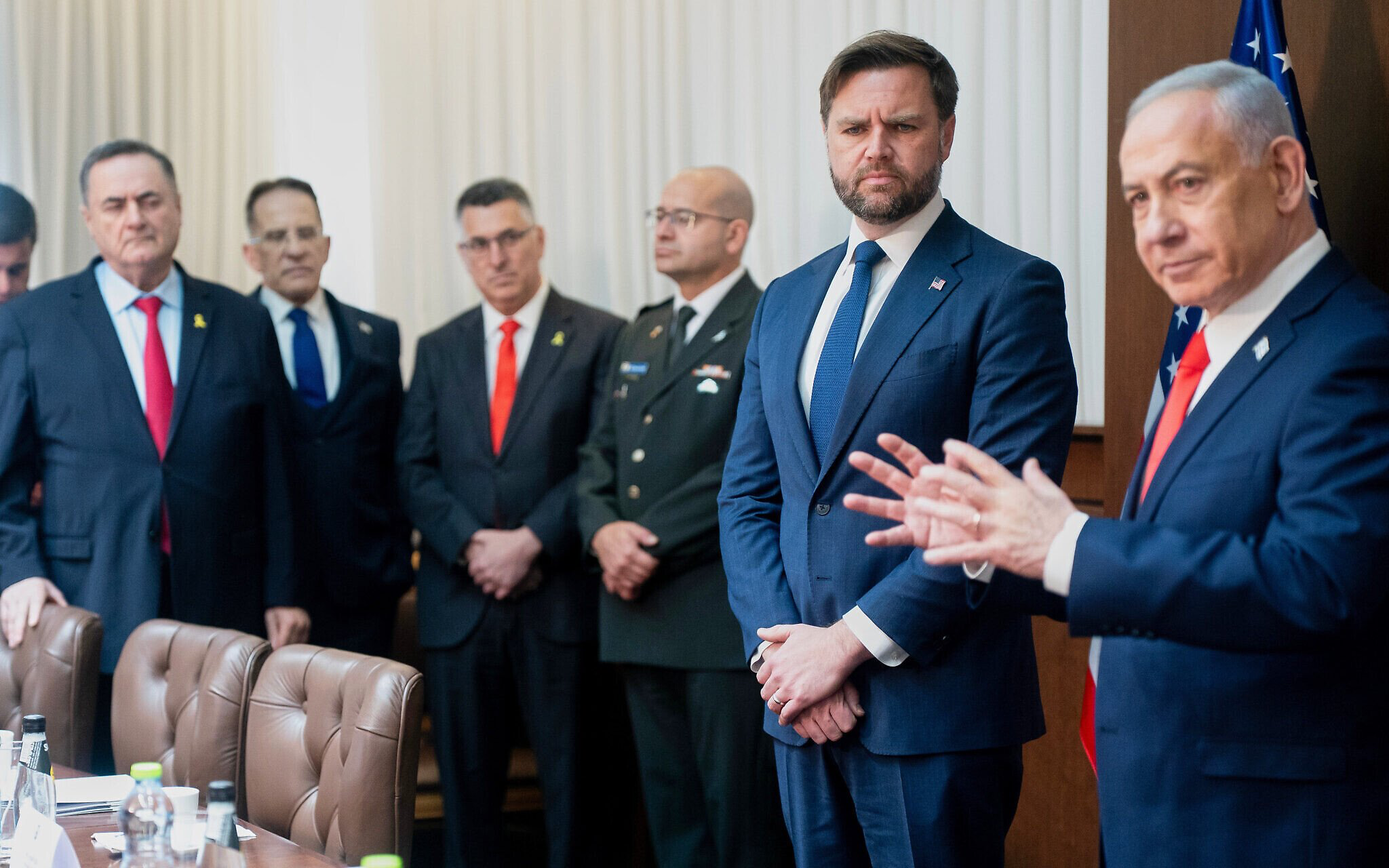
Israeli Submission
Yediot Aharonot revealed that in recent months it has become clear that “Israel” has effectively become an American protectorate, asserting that decisions are made in Washington, instructions are issued from there, and “Israel” is forced to comply.
It emphasized that “after President Trump presented his 20-point plan for security and diplomacy in Gaza, many issues remained unclear. Therefore, it is important for the Americans to be present and not let things fall apart.”
In a move with profound strategic implications, the Chairman of the US Joint Chiefs of Staff, General Dan Caine, is preparing to visit the Civil-Military Coordination Center established by US Central Command in Kiryat Gat, about 20 miles from the Gaza border.
The visit comes as part of efforts to solidify post-war arrangements in Gaza, while relations between Washington and Tel Aviv are somewhat strained politically regarding the future of Gaza, the role of international powers in reconstruction, and security management.
The tension arose after US officers demanded that “Israel” notify them in advance of any operations that might violate the ceasefire in Gaza, a demand the Israeli army considered an infringement on its sovereign prerogatives.
The visit of the US Chairman of the Joint Chiefs of Staff to “Israel” represents an early test of Washington's ability to impose its vision for managing Gaza after the war, amid Israeli rejection of any foreign oversight and Arab reservations about the idea of an international stabilization force.
Observers believe that this military-civilian headquarters in Kiryat Gat effectively represents the first organized field presence of the United States and its partners deep inside “Israel” to monitor the Gaza situation on a daily basis.
For weeks, the Trump administration has been pressuring Israeli Prime Minister Benjamin Netanyahu to solidify the fragile ceasefire and prevent renewed escalation.
However, these efforts are provoking increasing sensitivity in “Israel”, especially as Netanyahu's government fears that an escalating US role will diminish its control over security matters in the Gaza Strip.
Netanyahu insisted that “Israel” is a sovereign state that makes its own decisions on national security matters, in the wake of growing rumblings that key decisions about the future of the Gaza Strip are being made in Washington.
He specified that “Israel” would determine which countries would be permitted to send troops to Gaza within the framework of US President Donald Trump’s Gaza peace plan.
Netanyahu’s office said last week that it would not accept the deployment of Turkish troops, and the government reportedly remains firmly opposed to any role for the Palestinian Authority in Gaza.
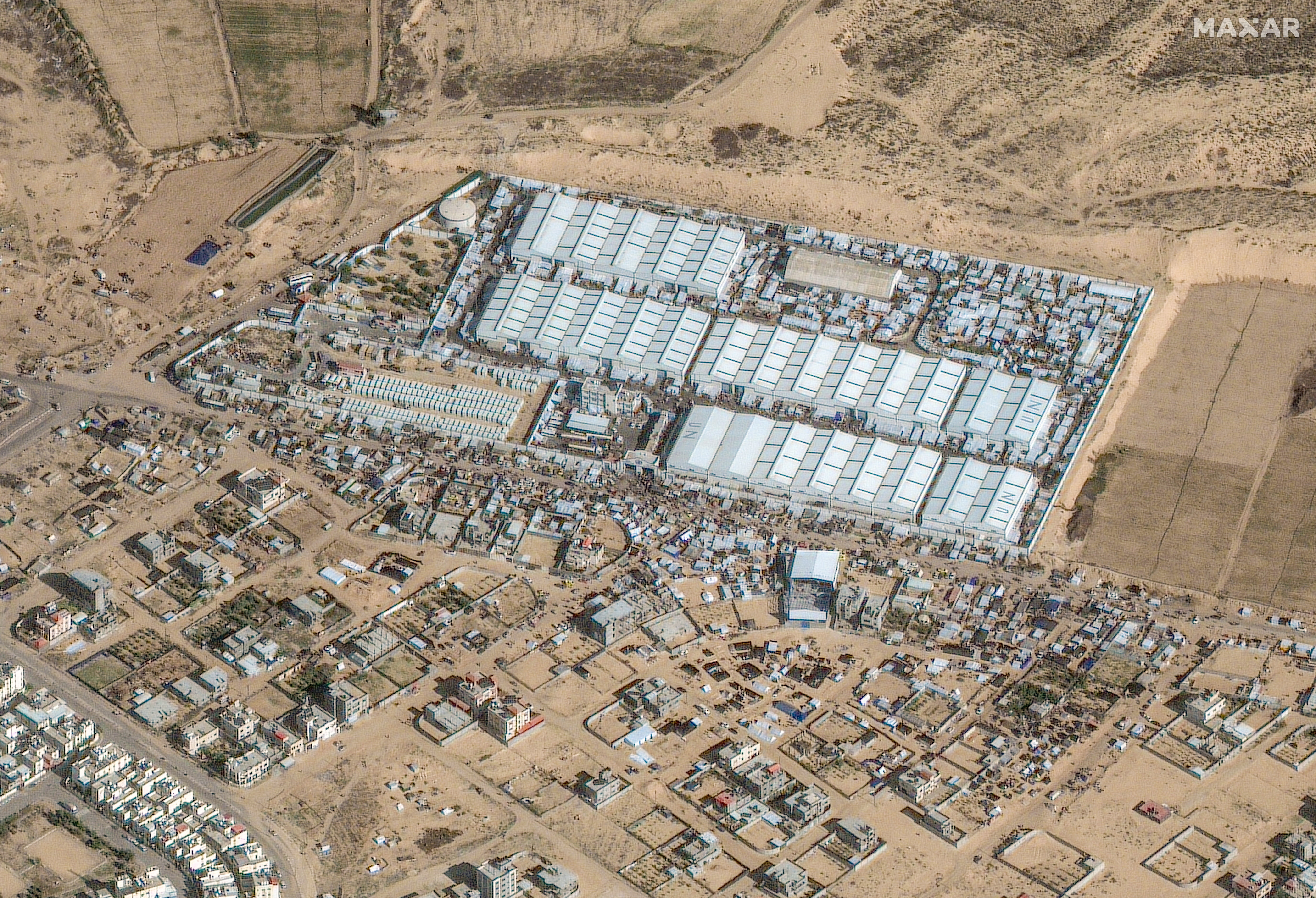
In turn, political writer Mohammed al-Nubani explained to Al-Estiklal that there are three likely objectives behind the intensive US visits to “Israel”.
“The first is to finalize the necessary arrangements to begin implementing Trump's plan aimed at displacing Gaza's residents to Egypt and Jordan,” he said.
“The second is to help Netanyahu's government achieve the remaining objectives of the war, foremost among them dismantling Hamas and disarming it,” he added.
The third objective, according to Mr. al-Nubani, is to pave the way for joint US-Israeli military strikes against Iran, Yemen, Lebanon, and Iraq, enabling Washington to consolidate its control over the entire Middle East and prevent Russia and China from forming a multipolar world.
Sources
- Gaza ceasefire deal going better than expected, Vance says
- How the American headquarters operates - and the fear that is coming true
- Interpretation of the return of the bodies is delayed, but the messages from the US are clear: the war is over
- Commentary Even the Americans are already having a hard time believing Netanyahu, they suspect he is playing a double game



